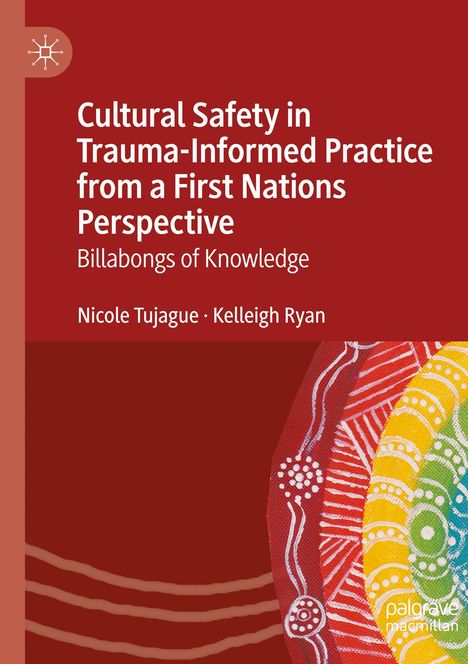Kelleigh Ryan: Cultural Safety in Trauma-Informed Practice from a First Nations Perspective
Cultural Safety in Trauma-Informed Practice from a First Nations Perspective
Buch
- Billabongs of Knowledge
- Verlag:
- Springer Nature Switzerland, 03/2024
- Einband:
- Kartoniert / Broschiert, Paperback
- Sprache:
- Englisch
- ISBN-13:
- 9783031131400
- Artikelnummer:
- 11799864
- Umfang:
- 320 Seiten
- Nummer der Auflage:
- 2023
- Auflage:
- 2023
- Gewicht:
- 416 g
- Maße:
- 210 x 148 mm
- Stärke:
- 18 mm
- Artikelnummer:
- 11799864
- Erscheinungstermin:
- 13.3.2024
- Hinweis
-
Achtung: Artikel ist nicht in deutscher Sprache!
Weitere Ausgaben von Cultural Safety in Trauma-Informed Practice from a First Nations Perspective |
Preis |
|---|
Klappentext
This book provides an accessible resource for conducting culturally safe and trauma-informed practice with First Nations peoples in Australia. Designed by and for Australian Indigenous peoples, it explores psychological trauma and healing, and the clinical and cultural implications of the impacts of colonization, through an Indigenous lens. It is a companion for anyone who works or will work with our families and communities.The authors recognise trauma at the heart of all Indigenous disadvantage, and explore types of trauma in the context of Indigenous, collective cultures. The chapters take an Indigenous Yarning approach to sharing knowledge, and encourage readers to challenge their unconscious, long-held beliefs and worldviews. Nicole Tujague and Kelleigh Ryan identify the differences between mainstream systems and more holistic Indigenous understandings of social and emotional health and wellbeing and outline a meaningful practice framework for practitioners. They analyse types of complex trauma, including intergenerational, institutional, collective and historical trauma; and discuss the impacts of racism and the concept of cultural load . They also address vicarious, or compassion trauma experienced by front line workers and carers; and offer insights into their experience of working with collective healing programs.
This book is essential reading for Indigenous practitioners and service providers to Aboriginal and Torres Strait Islander people. It is also a valuable resource for students likely to work with First Nations peoples within a broad range of health and social science disciplines.


